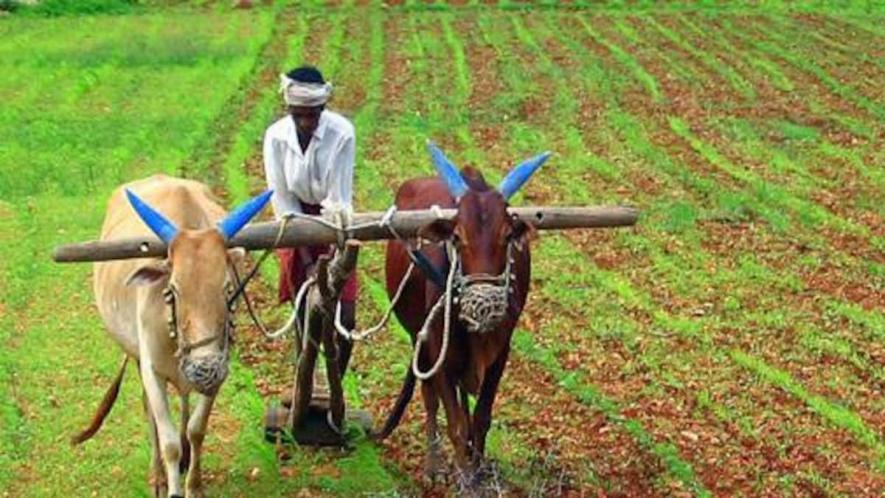Kerala Introduces Base Price for 16 Agricultural Produce

Representational Image. Image Courtesy: Business Today
The Left Democratic Front (LDF) government in Kerala has introduced a base price for 16 agricultural produce, including vegetables, fruits and tubers, to protect farmers from price fluctuations in the market. The state cabinet on Wednesday cleared the proposal and the base price of produce will come into force from November 1, Keralapiravi day (Kerala formation day).
The initiative from the state government, the first of its kind in the country, aims to ensure protection for farmers. The base price has been fixed by calculating the production cost plus 20% on the basis of a study conducted by the State Agricultural Prices Board.
“The priority of farmers is to get a fair price for their produce. When they are not getting it, farmers are thrown into poverty and are often forced to end their lives committing suicide,” said VS Sunil Kumar, state agricultural minister, in a Facebook post.
As per the government’s decision, the base prices have been fixed as follows -- tapioca Rs 12, Nendran banana/Wayanadan Nendran Rs 30/24), pineapple Rs15, ash gourd Rs9, cucumber Rs8, bitter gourd Rs 30, snake gourd Rs 30, string beans Rs 34, tomato Rs 8, ladiesfinger Rs 20, cabbage Rs 11, carrot Rs 21, potato Rs 20, beans Rs 28, beetroot Rs 21 and garlic Rs 139.
If the market prices of these 16 produce fall below the base price in a district, a district-level committee will screen it and declare the base price as having come into force in that district.
Read more: As Centre Privatises, Kerala Forms Farmers Welfare Fund Board for Farmer Security
“The Agriculture Department has joined hands with the Local Self-Government Department and the Cooperation Department to introduce the pricing,” Kumar said, adding that the produce will be procured through outlets of the department, VFPCK and Horticorp, and the Primary Agricultural Credit Cooperative Societies.
To avail these facilities, the farmers have to upload the area of their farmland, data on sowing, expected harvest and harvest time before the season on the web portal, www.aims.kerala.gov.in. Farmers with a maximum of 15 acres of cultivation in a season are eligible for getting the base price.
“The current LDF government in the state has continuously been trying to implement alternative models benefitting the common people. Recently, after 22-long years, the state government increased the insurance cover for produce in proportion with the cost of production,” the minister added.
At present, the Centre declares a Minimum Support Price for 22 products, primarily grains, pulses and oilseeds, paddy and copra, ahead of the season. But, in the case of Kerala, according to the Agriculture Department, the MSP for paddy and copra are mainly relevant.
The MSP for paddy announced by the Centre is Rs 1,868 per quintal for the 2020-21 crop year. While in Kerala, the MSP for paddy is Rs 2,630 per quintal.
The Kerala government’s decision comes at the time when the Centre is being flayed for proceeding with “anti-farmer” reforms. The newly introduced farm laws – Farmers’ Produce Trade and Commerce (Promotion & Facilitation) Ordinance 2020, The Farmers’ (Empowerment & Protection) Assurance and Farm Service Ordinance 2020 and The Essential Commodities (Amendment) Ordinance 2020 – which were passed in September and signed into laws by President Ram Nath Kovind on September 27, will ultimately help the corporates, say various farmer organisations.
Following this, farmers across the country are protesting, with several of them on streets in Punjab, Haryana and parts of Uttar Pradesh, against the new laws. The All India Kisan Sangharsh Coordination Committee, an umbrella of over 250 farmer organisations, has given the call for ‘Delhi Chalo’ protest on November 26 and 27.
Get the latest reports & analysis with people's perspective on Protests, movements & deep analytical videos, discussions of the current affairs in your Telegram app. Subscribe to NewsClick's Telegram channel & get Real-Time updates on stories, as they get published on our website.














